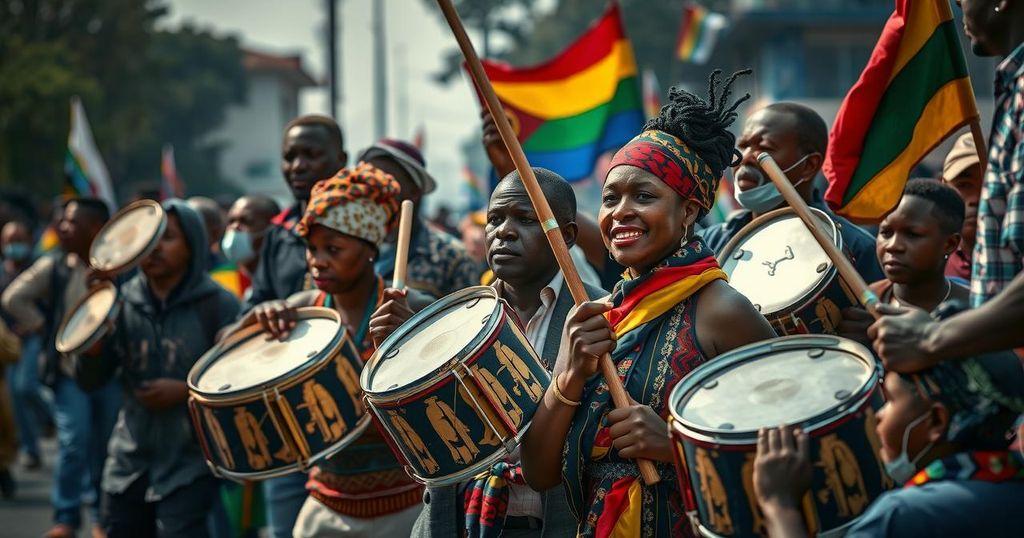Mozambique is currently experiencing sustained protests following disputed election results, characterized by innovative forms of dissent such as “panelacos”. The unrest reflects deep-seated discontent with the ruling party and has led to violent clashes with police, economic shutdowns, and food shortages. Opposition leader Venancio Mondlane has galvanized public support, highlighting significant socioeconomic grievances underlying the protests.
In the wake of a contentious election in Mozambique, protests have intensified, characterized by nightly pot-banging demonstrations known as “panelacos.” Following the October 9 elections, widespread discontent arose after the ruling party, Frelimo, declared Daniel Chapo the winner amidst claims of electoral irregularities. As citizens rally behind opposition leader Venancio Mondlane, frustrations manifest not only in innovative protest tactics but also in violent clashes with police, resulting in numerous fatalities. The unrest has stifled economic activity, raised concerns over food shortages, and disrupted regional trade, particularly with South Africa. Activists express a growing disenchantment with the government, viewing these protests as indicative of deeper socioeconomic challenges in the country.
The current unrest in Mozambique traces back to the disputed presidential election results announced by the National Election Commission (CNE). Following the elections, which took place on October 9, the purported victory of Daniel Chapo from Frelimo drew significant public skepticism. Notably, the assassination of an attorney tasked with challenging the election results intensified public outrage. As the protests unfolded, residents across the social spectrum participated in the panelaco protests, highlighting a unifying sentiment against perceived governmental oppression and electoral fraud. Furthermore, socioeconomic grievances underpin these protests, revealing a broader disenchantment with the ruling party’s economic management over the past decade.
The ongoing protests in Mozambique, marked by innovative forms of dissent such as pot-banging, underscore a profound discontent with the government’s legitimacy and effectiveness. The unrest has significant socioeconomic implications, exacerbated by clashes with law enforcement and disruptions to trade and food supplies. As citizens rally against governmental misconduct, the protests reflect deeper systemic issues that challenge the political order in Mozambique. Given their sustained nature, these demonstrations signal a critical moment in the country’s civil discourse and political landscape.
Original Source: www.aljazeera.com






